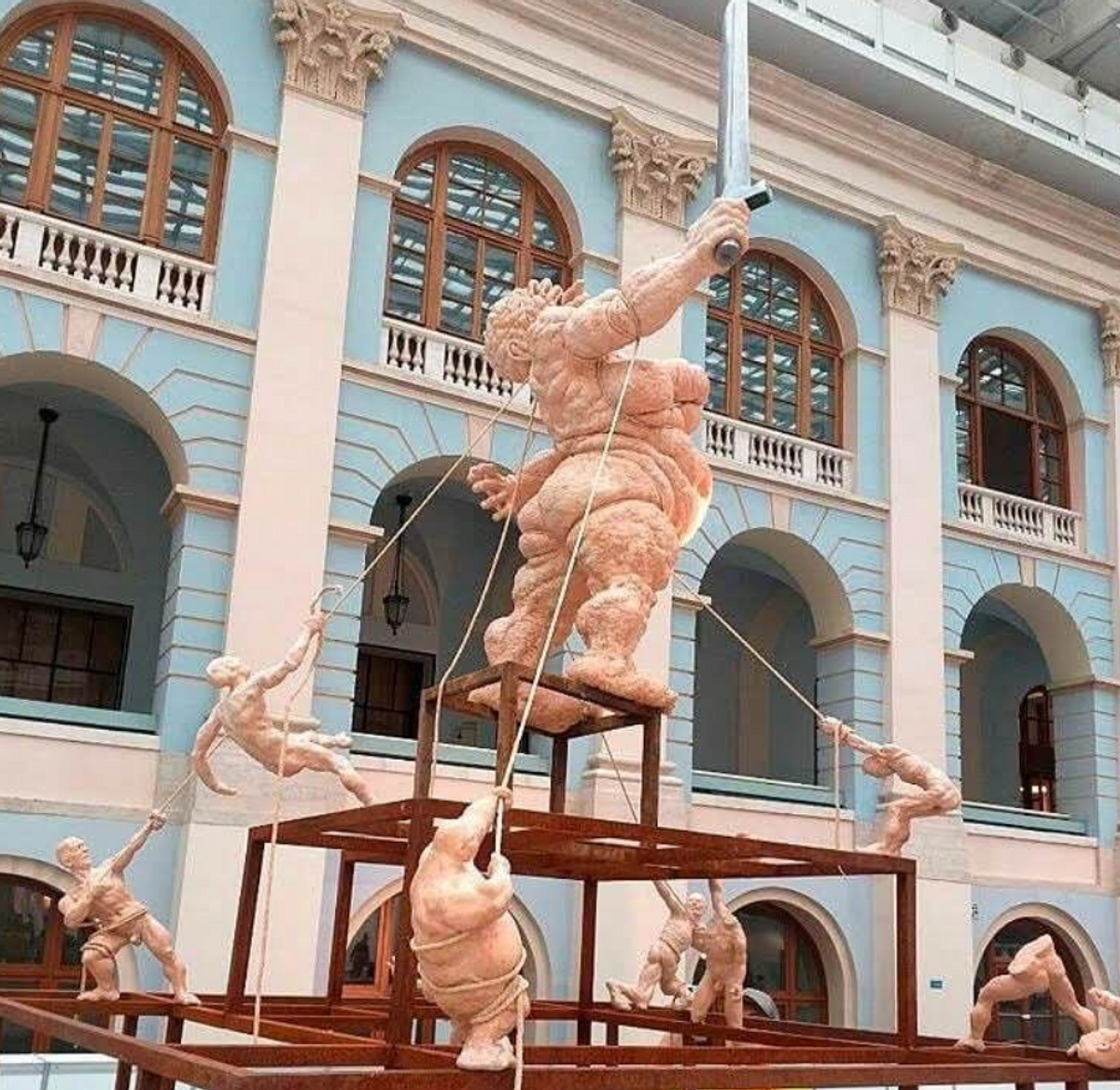The Russian contemporary artist Oleg Kulik faces criminal prosecution on charges of “rehabilitation of Nazism” for his sculptural installation Big Mother, which was shown earlier this month at the Art Moscow fair. It is the latest sign of an ideological crackdown in Russia since President Vladimir Putin ordered the invasion of Ukraine on 24 February.
Kulik was called in for questioning on Wednesday by the Investigative Committee, Russia’s equivalent of the FBI, which is known for pursuing ideological cases. The artist, who was born in Kyiv, first gained fame in the 1990s for his performance as a mad dog.
President Vladimir Putin has repeatedly stated that “denazification” is the goal of what is officially described as Russia’s “special military operation” in Ukraine.
For years the Kremlin has been turning Russia’s victory over Nazi Germany into a sacred event that is commemorated in increasingly ritualized form on the annual 9 May Victory Day holiday.
Kulik’s work came under fire after militant pro-Kremlin politicians said it mocked the towering monument The Motherland Calls located in a complex in Volgograd that is dedicated to the Battle of Stalingrad during the Second World War.
Alexander Khinshtein, a deputy of the State Duma, the lower house of parliament, complained to prosecutors and the Investigative Committee and denounced the work in his Telegram channel: “Those who committed this heinous act must be held accountable to the fullest extent of the law!”
Later he added: “I don’t know what kind of scores this ‘artist’ has with the Motherland, but I consider it unacceptable to disregard such antics” and “I really hope that Mr. Kulik will lose the opportunity to present his ‘art’ at Russian exhibitions and will be engaged in the decoration of institutions of the penitentiary system.”
Kulik's sculpture depicts a fleshy, naked female figure with an arm raised upward holding a sword—a gesture that presumably led to the parallels with The Motherland Calls. He told our sister paper The Art Newspaper Russia on Thursday that he worked on the sculpture for three years before it was first displayed in 2018, and never foresaw such consequences.
“If I could imagine at least 10% of the interpretation that is now being made of my work, I would not only not show it, but I would not even have started it,” he said. It was inspired by “a painful recovery from the trauma associated with splitting up with my beloved wife.”
“This sculpture is my confession, an attempt at introspection and, in a sense, therapy. It seemed to me that it worked out, although today I had doubts,” he added.
Also this week, the State Tretyakov Gallery abruptly shut down a retrospective of works by the non-conformist artist Grisha Bruskin, which included Scene Change, an installation about the relationship between society and the authorities, shown at the Venice Biennale in 2017. The museum told Russian media that it closed for “technical reasons,” but Artguide, an online arts publication, reported that the order came from the culture ministry. Users on Telegram speculated it may have had to do with Bruskin’s American citizenship.
Parliamentarians said that as a result of Kulik’s work they plan to introduce a law "to protect against the desecration of artistic images, works of literature and art dedicated to the Great Patriotic War,” the Kommersant newspaper reported, an indicator of even harsher censorship ahead.


